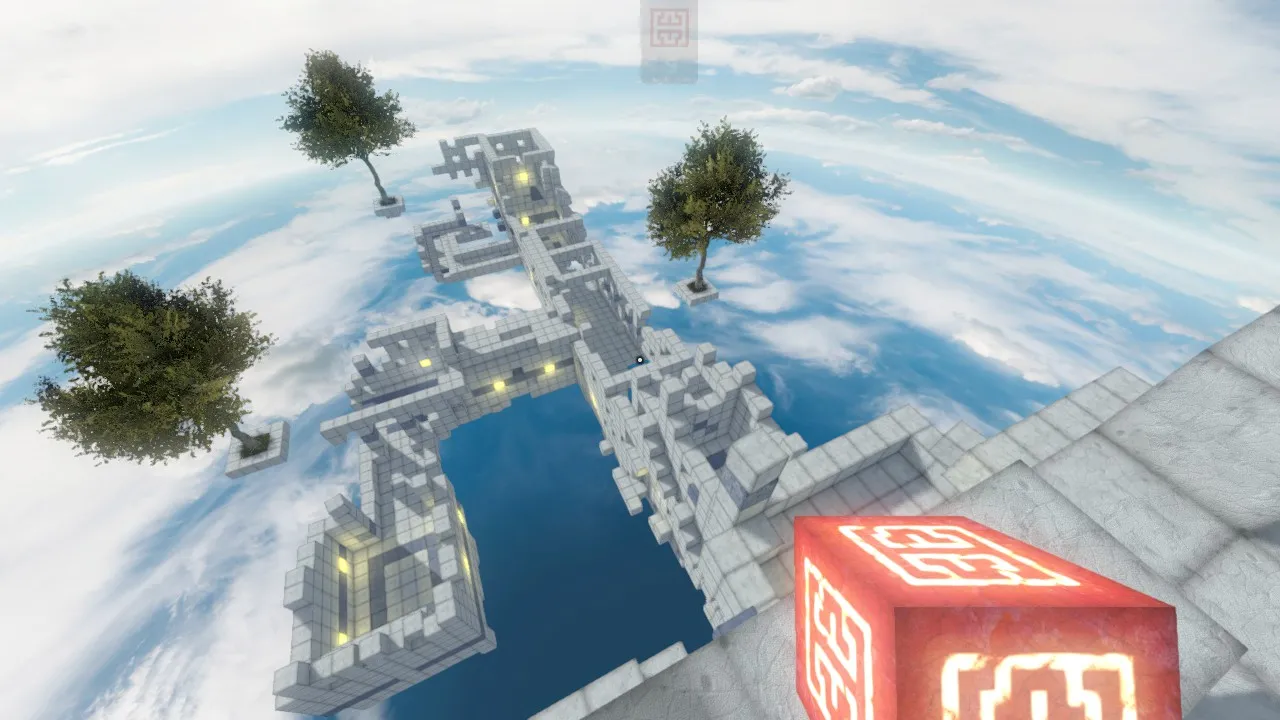
Qbeh-1: The Atlas Cube – A Captivating Puzzle Adventure
Contents
Inspired by Portal and Minecraft, Liquid Flower’s debut title Qbeh launched in 2012 and quickly garnered praise for its unique puzzle-adventure gameplay. Building on this success, Liquid Flower released Qbeh-1: The Atlas Cube in 2014, expanding on the original’s core mechanics with more intricate levels and challenges. Does this puzzle adventure live up to its predecessor’s legacy? Let’s delve into the world of Qbeh-1: The Atlas Cube and discover its strengths and weaknesses.
 alt text: A screenshot from Qbeh-1: The Atlas Cube showing the player character navigating a level using colored blocks.
alt text: A screenshot from Qbeh-1: The Atlas Cube showing the player character navigating a level using colored blocks.
Simple Yet Engaging Gameplay
Qbeh-1: The Atlas Cube seamlessly blends adventure and puzzle elements. Players explore intricate levels, collecting colored cubes that serve as makeshift bridges and stairs to navigate challenging terrain and reach the exit. The core gameplay revolves around strategically placing these cubes to overcome obstacles, creating a simple yet compelling puzzle experience.
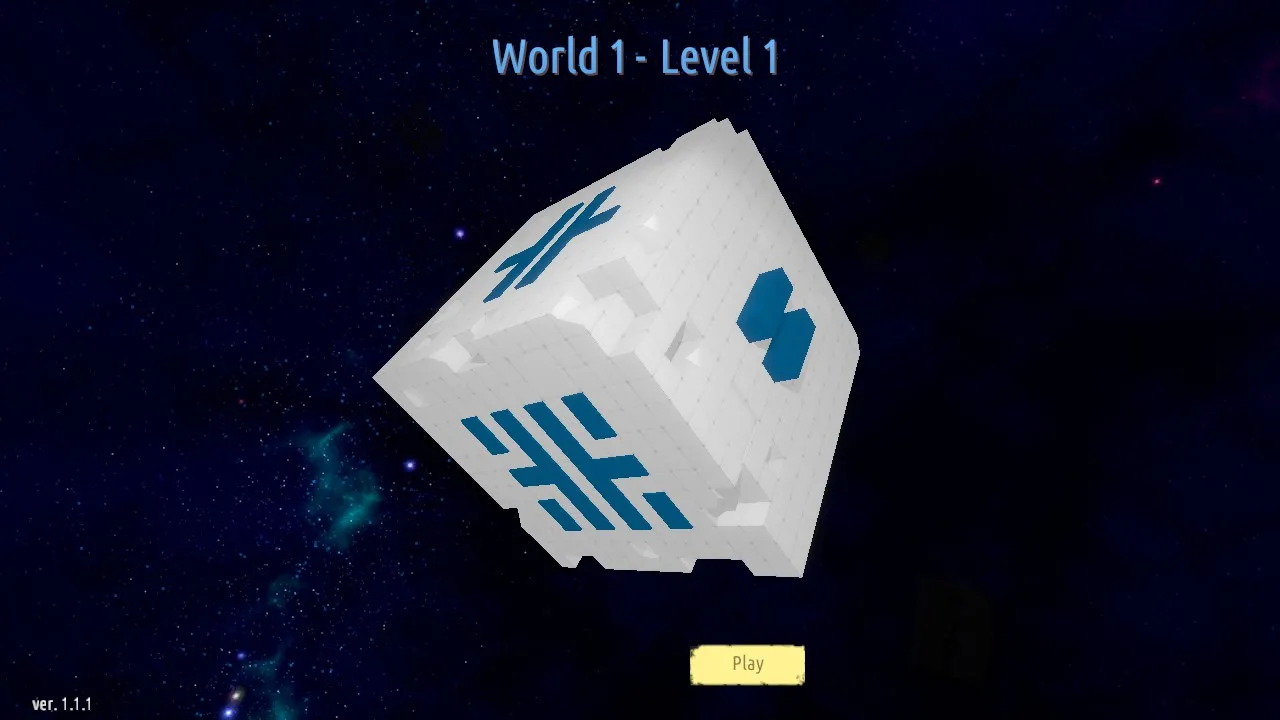 alt text: The player character in Qbeh-1: The Atlas Cube stands on a platform constructed from colored blocks, demonstrating the core gameplay mechanic.
alt text: The player character in Qbeh-1: The Atlas Cube stands on a platform constructed from colored blocks, demonstrating the core gameplay mechanic.
The game gradually increases in difficulty. Initial levels serve as a gentle introduction, familiarizing players with the mechanics. As new cube types with unique functionalities are introduced, the puzzles become more complex, requiring careful planning and execution.
Hidden within each level is a golden pyramid cube, adding an extra layer of challenge for completionists. Collecting all these hidden cubes unlocks a sixth world containing even more demanding puzzles.
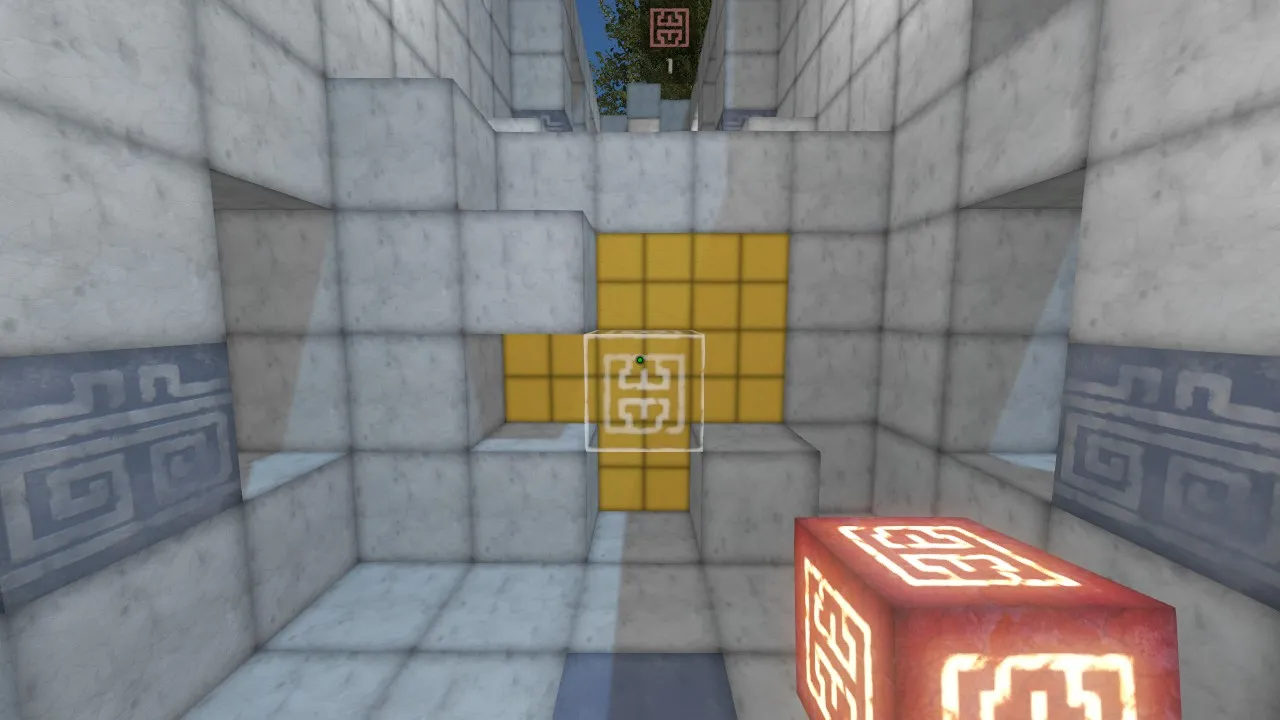 alt text: A view of a level in Qbeh-1: The Atlas Cube, showcasing the game's minimalist aesthetic and the use of colored blocks for navigation.
alt text: A view of a level in Qbeh-1: The Atlas Cube, showcasing the game's minimalist aesthetic and the use of colored blocks for navigation.
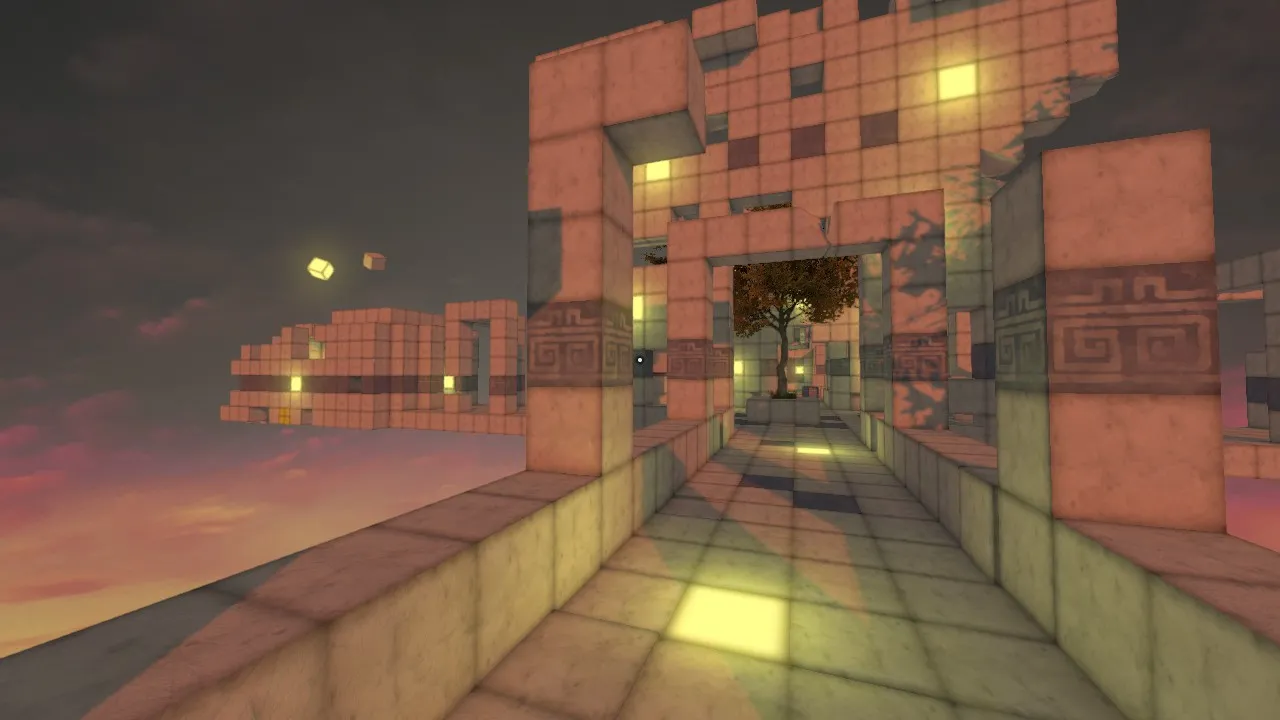 alt text: The player character in Qbeh-1: The Atlas Cube utilizes a series of colored blocks to traverse a gap in the level.
alt text: The player character in Qbeh-1: The Atlas Cube utilizes a series of colored blocks to traverse a gap in the level.
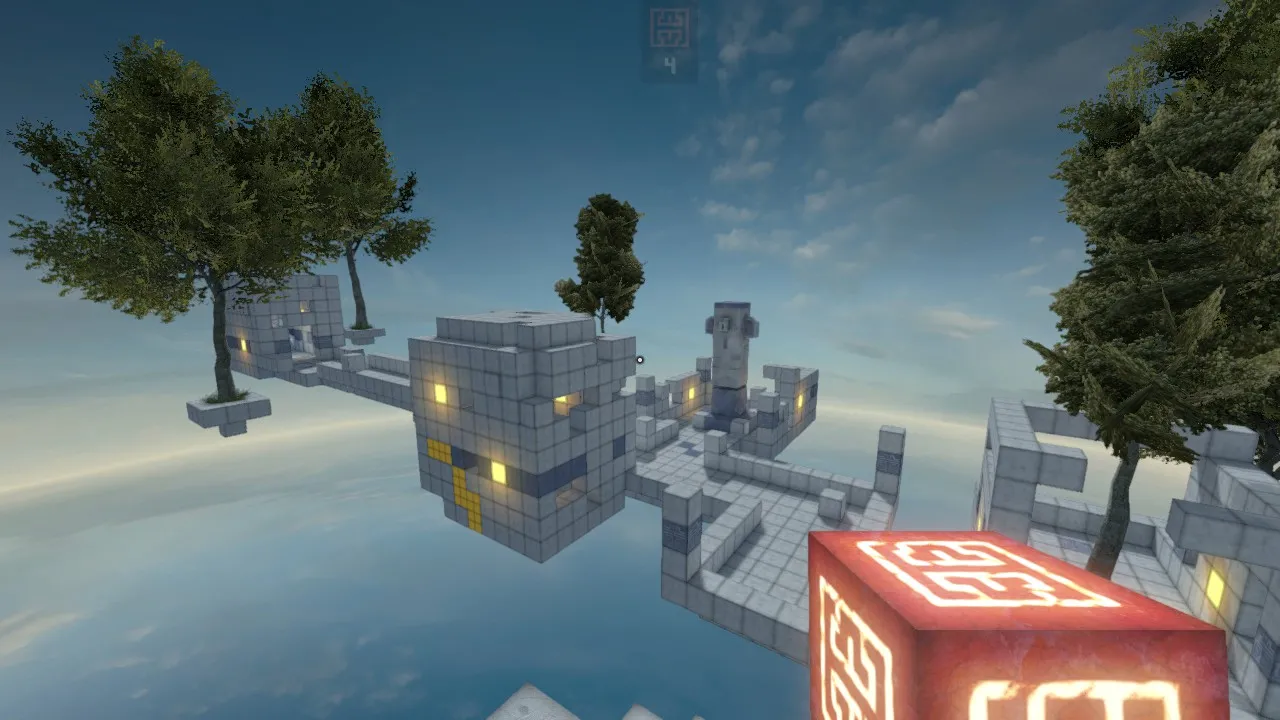 alt text: A complex puzzle in Qbeh-1: The Atlas Cube requires precise placement of colored blocks to reach the exit.
alt text: A complex puzzle in Qbeh-1: The Atlas Cube requires precise placement of colored blocks to reach the exit.
A Visually and Aurally Stunning Experience
Qbeh-1: The Atlas Cube boasts a minimalist yet striking visual style. The carefully chosen color palette creates a serene and artistic atmosphere. The masterful use of lighting further enhances the visuals, casting a poetic glow over diverse environments, from vibrant daytime skies to breathtaking sunsets.
The game’s soundtrack is equally impressive. The mellow and harmonious music perfectly complements the tranquil atmosphere, providing a welcome respite from the challenging puzzles. The gentle piano melodies create a soothing ambiance, allowing players to immerse themselves in the game’s world.
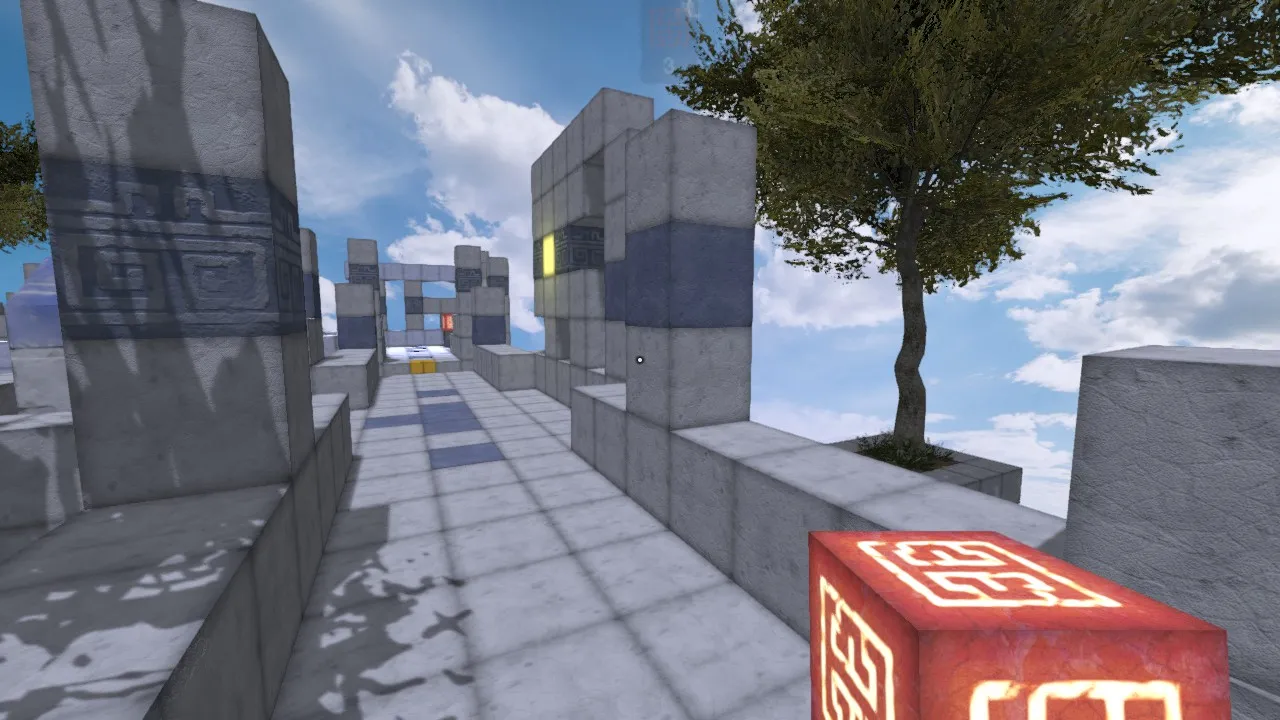 alt text: A screenshot of Qbeh-1: The Atlas Cube showcasing the game's serene and artistic visuals, with a focus on the atmospheric lighting.
alt text: A screenshot of Qbeh-1: The Atlas Cube showcasing the game's serene and artistic visuals, with a focus on the atmospheric lighting.
The Downside: Cube Collection and Replayability
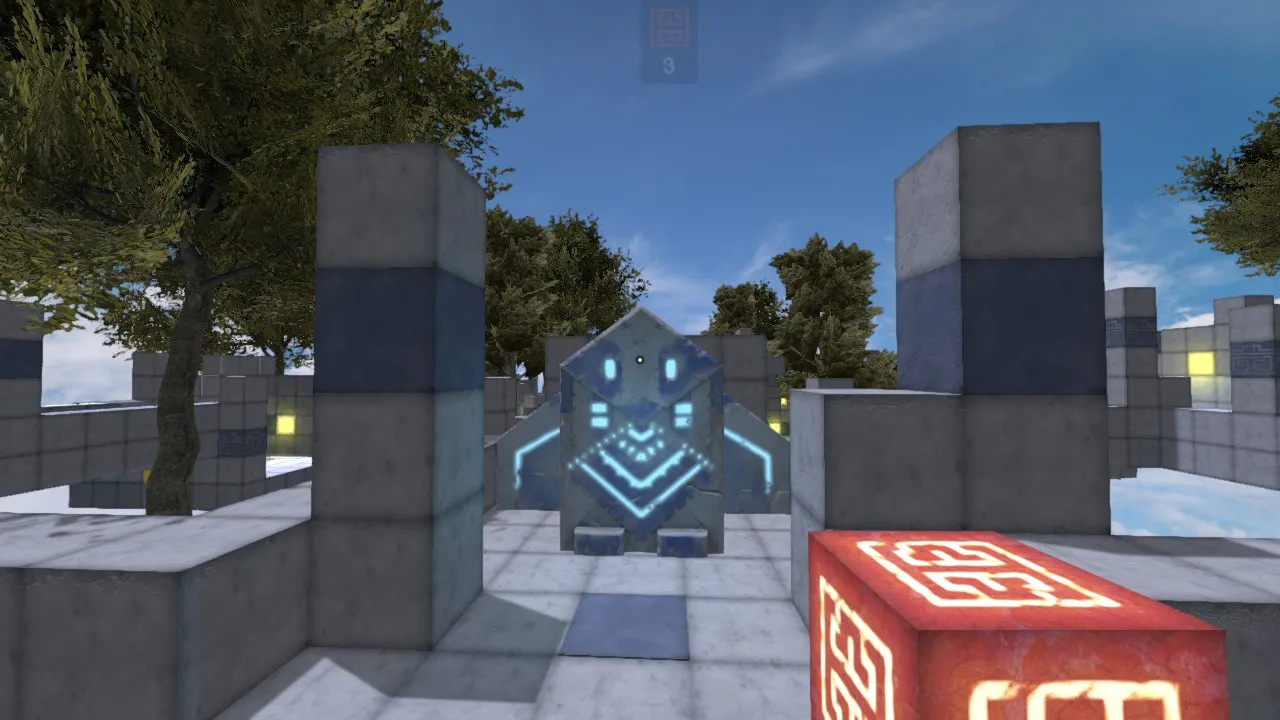 alt text: The player character in Qbeh-1: The Atlas Cube surrounded by colored blocks, highlighting the sometimes tedious process of collecting them.
alt text: The player character in Qbeh-1: The Atlas Cube surrounded by colored blocks, highlighting the sometimes tedious process of collecting them.
While the cubes are the key to solving puzzles, collecting them can sometimes feel tedious. A significant portion of gameplay involves searching for the necessary cubes, often without clear direction due to the lack of an in-game map or guidance. This can lead to aimless wandering, especially in puzzles requiring specific cube quantities.
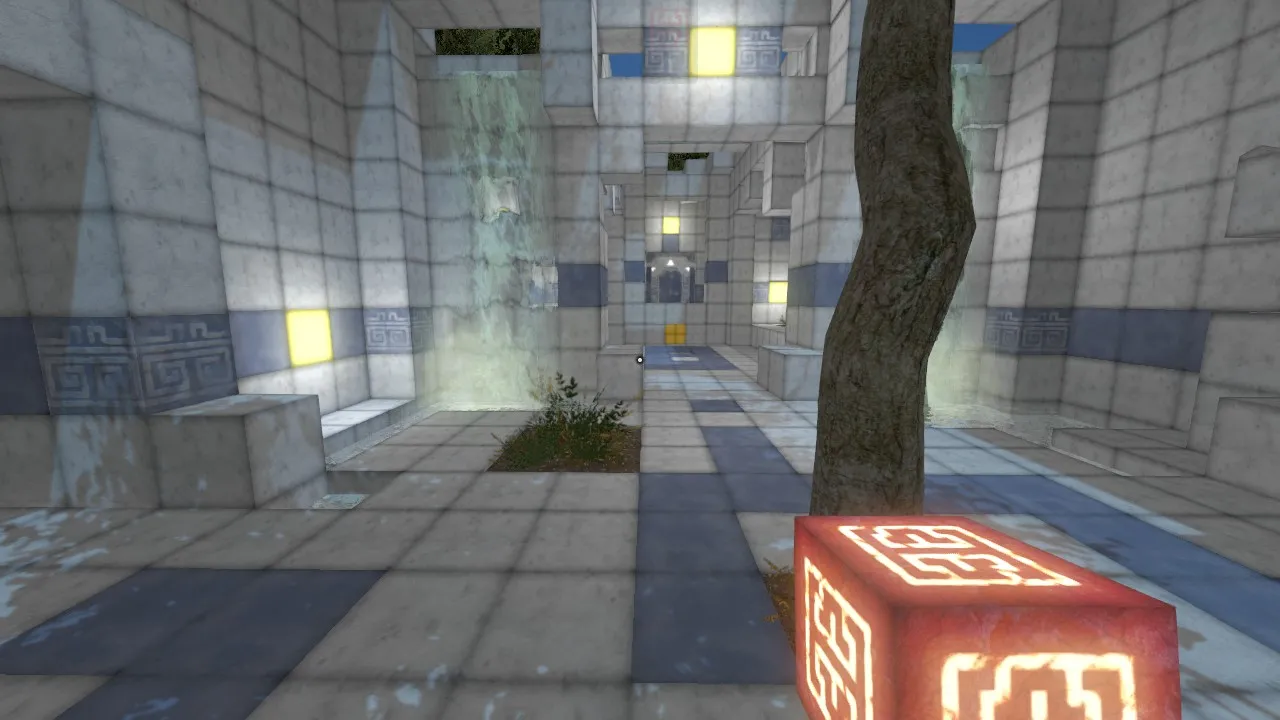 alt text: A challenging puzzle in Qbeh-1: The Atlas Cube necessitates the collection of a specific number of colored blocks, which can be time-consuming.
alt text: A challenging puzzle in Qbeh-1: The Atlas Cube necessitates the collection of a specific number of colored blocks, which can be time-consuming.
The lack of adjustable game speed can further exacerbate this issue, particularly in levels requiring extensive backtracking. Once a puzzle is solved, the solution is readily apparent, diminishing the incentive for replaying levels. While the hidden pyramid cubes and secret room offer some replay value, the lack of restrictions allows players to find them on their first playthrough.
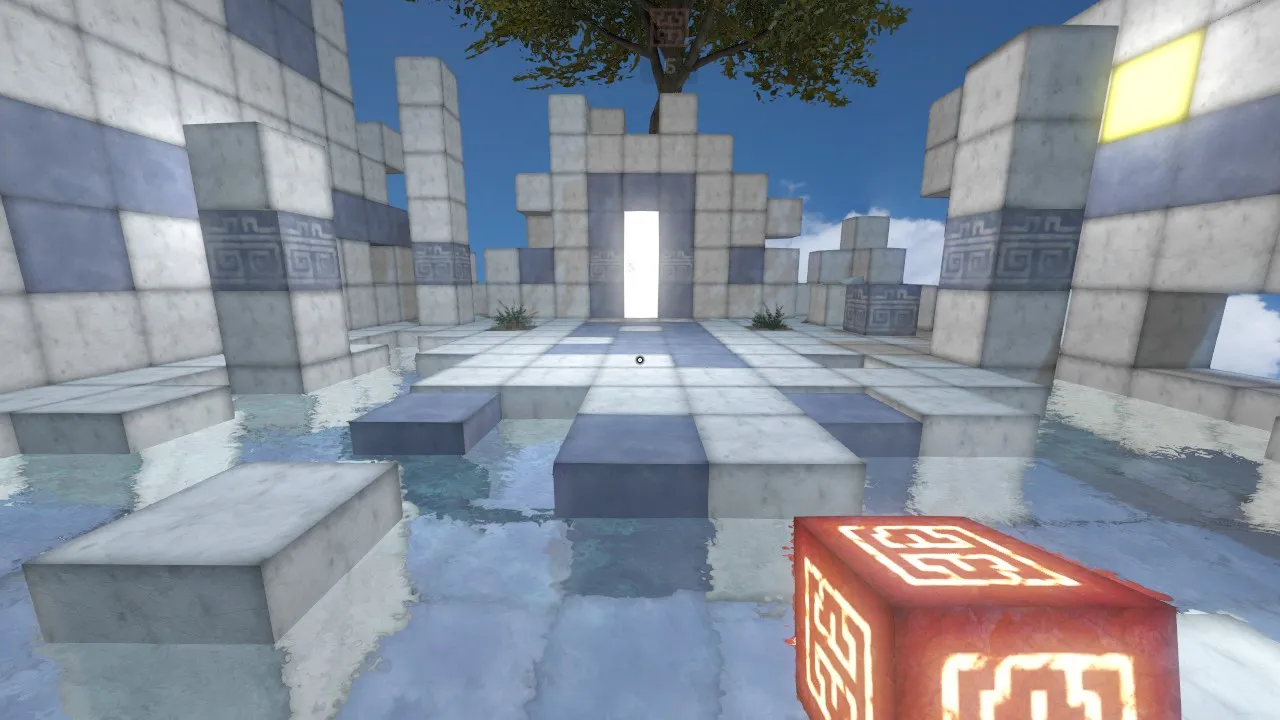 alt text: A section of a level in Qbeh-1: The Atlas Cube highlighting the game's environmental design and the strategic placement of colored blocks.
alt text: A section of a level in Qbeh-1: The Atlas Cube highlighting the game's environmental design and the strategic placement of colored blocks.
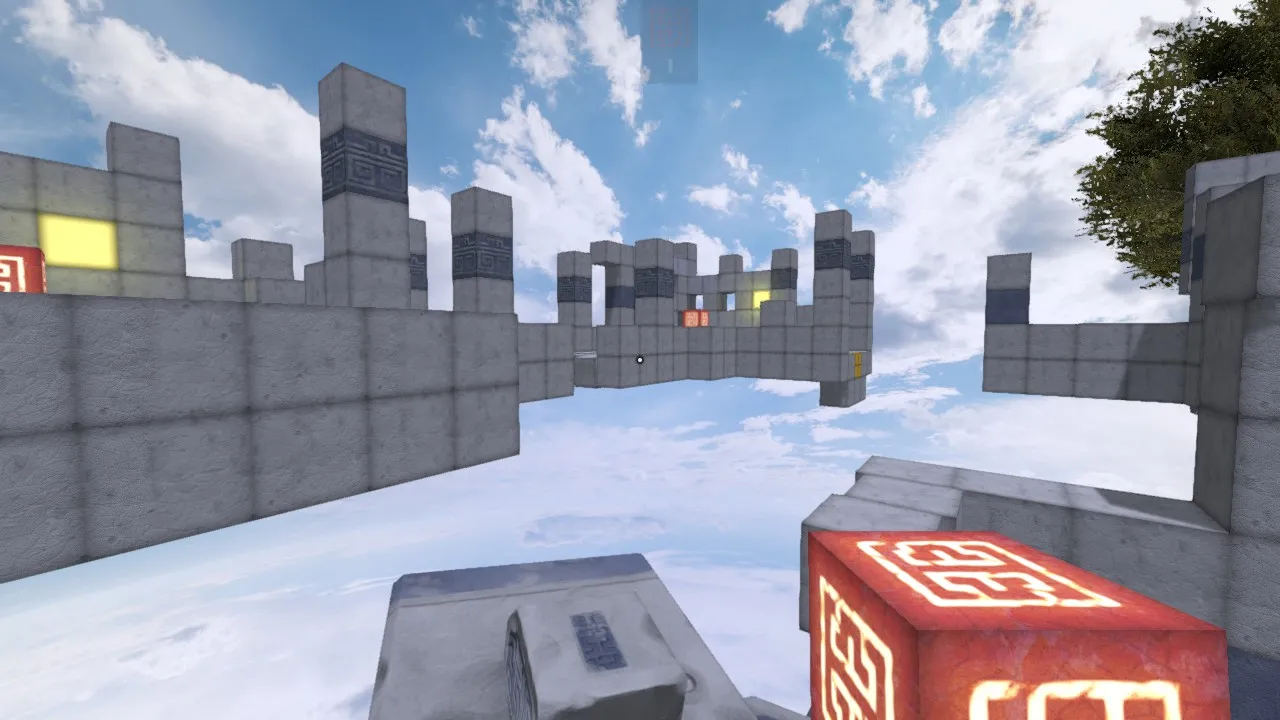 alt text: The player character in Qbeh-1: The Atlas Cube stands at the entrance to a new level, demonstrating the game's progression system.
alt text: The player character in Qbeh-1: The Atlas Cube stands at the entrance to a new level, demonstrating the game's progression system.
Conclusion
Qbeh-1: The Atlas Cube is a visually stunning and aurally pleasing puzzle adventure with engaging core gameplay. However, the tedious cube collection process and limited replayability detract from the overall experience. Despite these shortcomings, Qbeh-1: The Atlas Cube offers a unique and captivating puzzle experience that fans of the genre will appreciate.
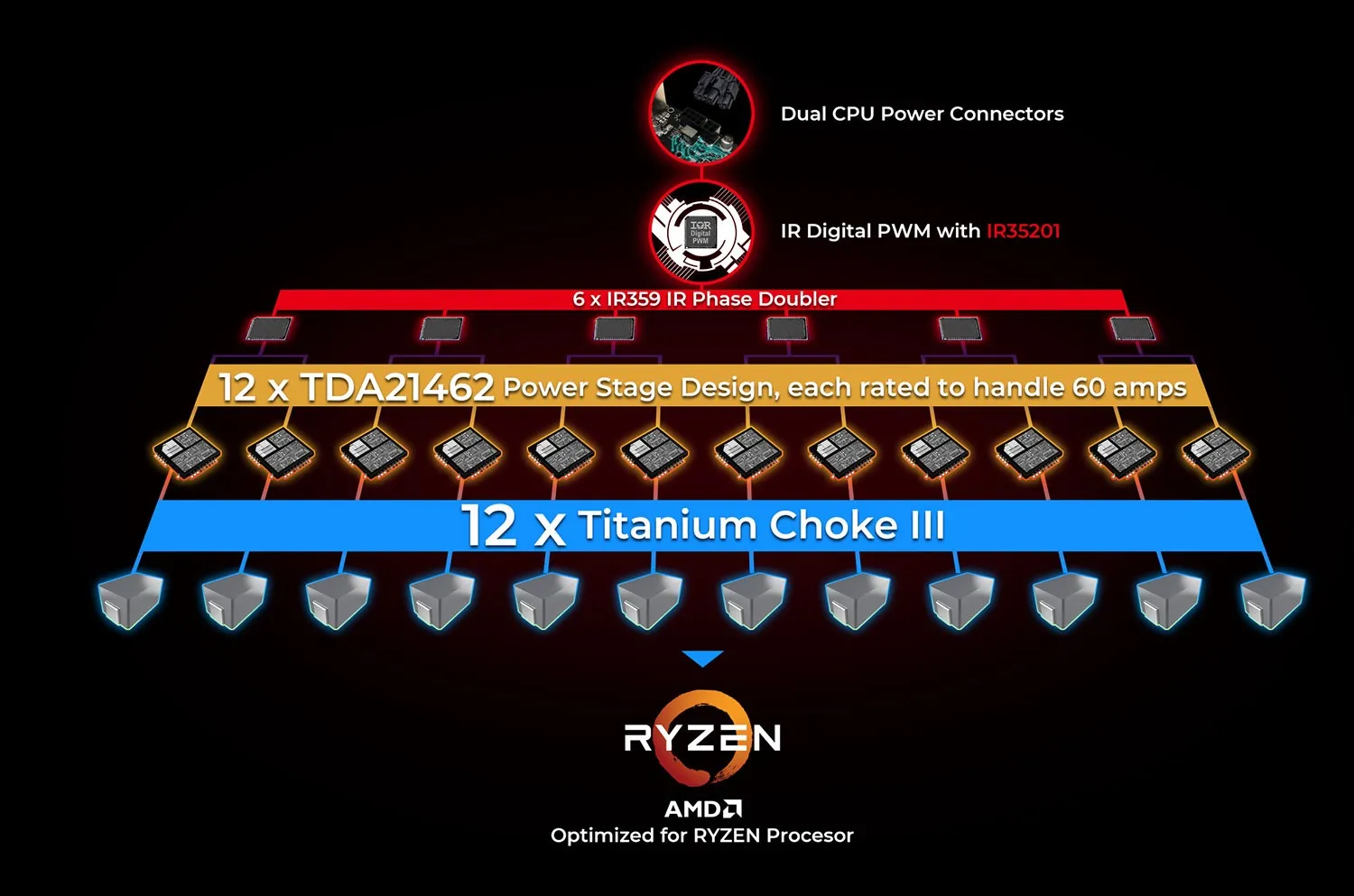
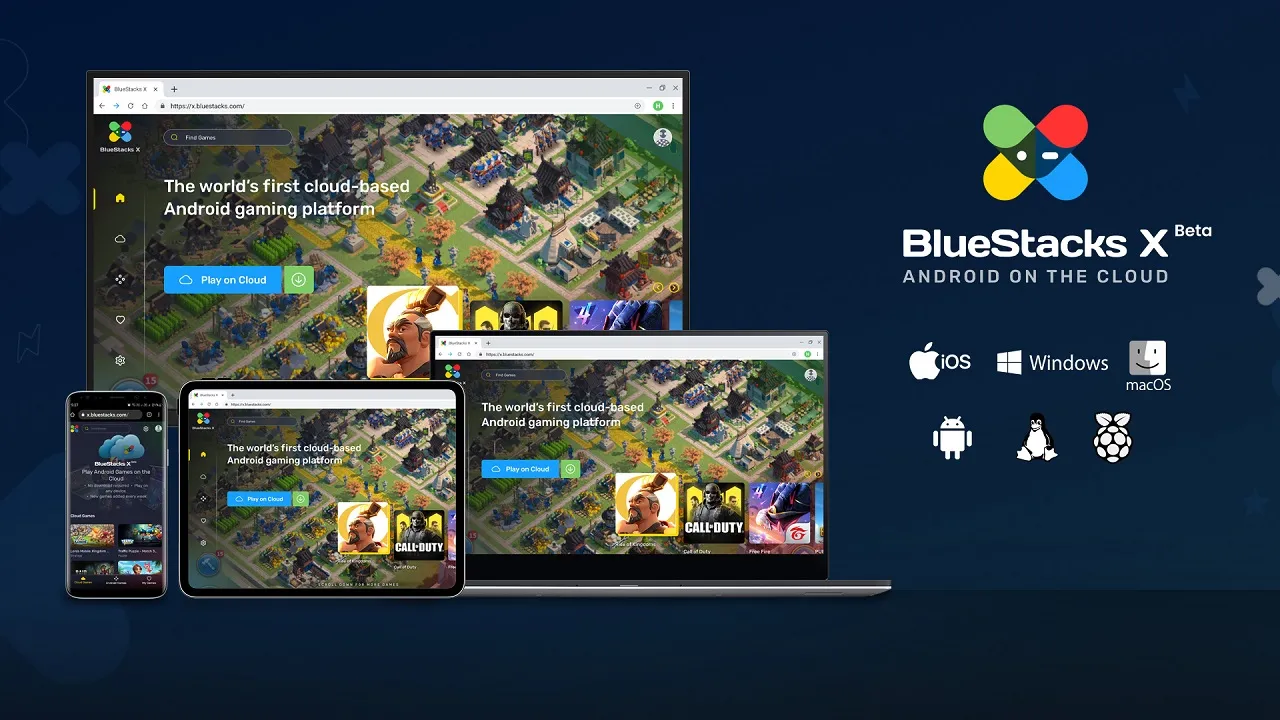
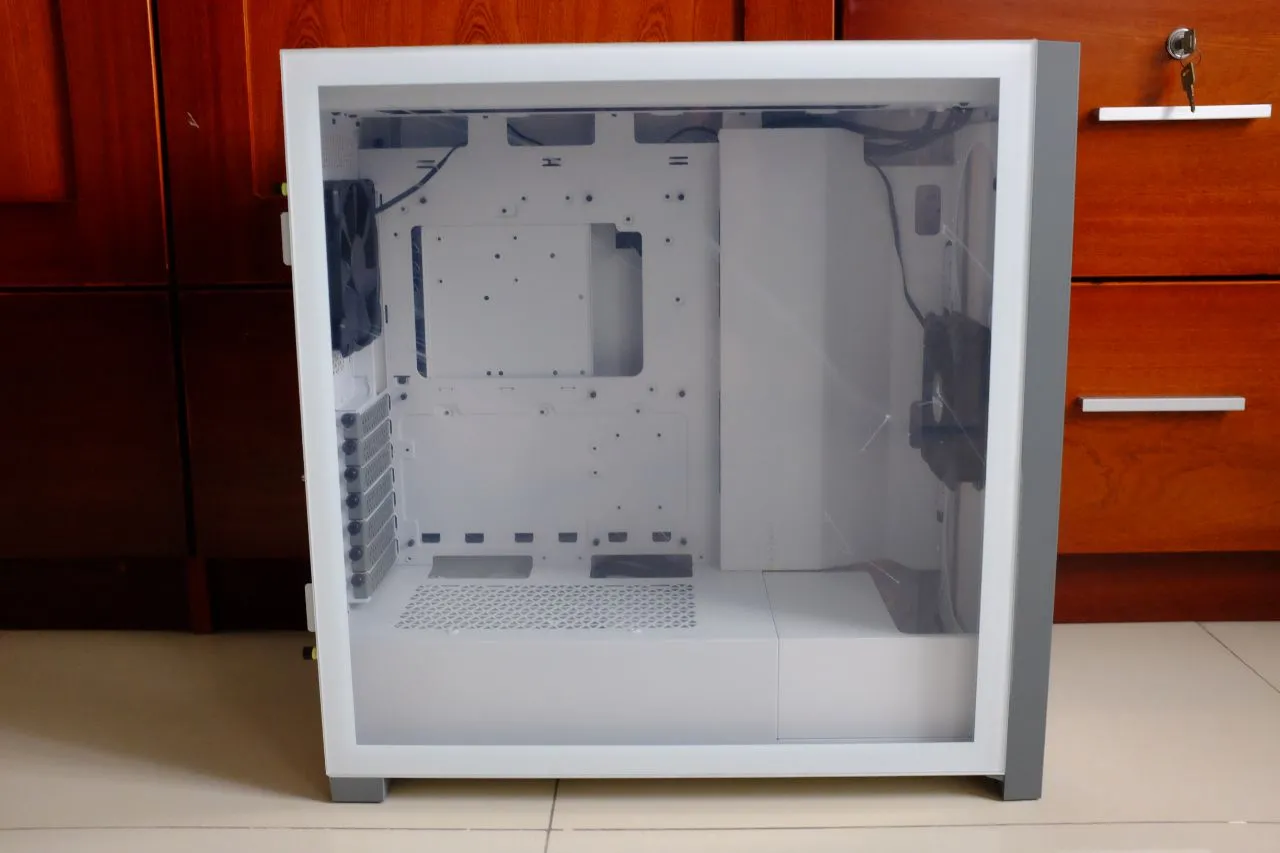
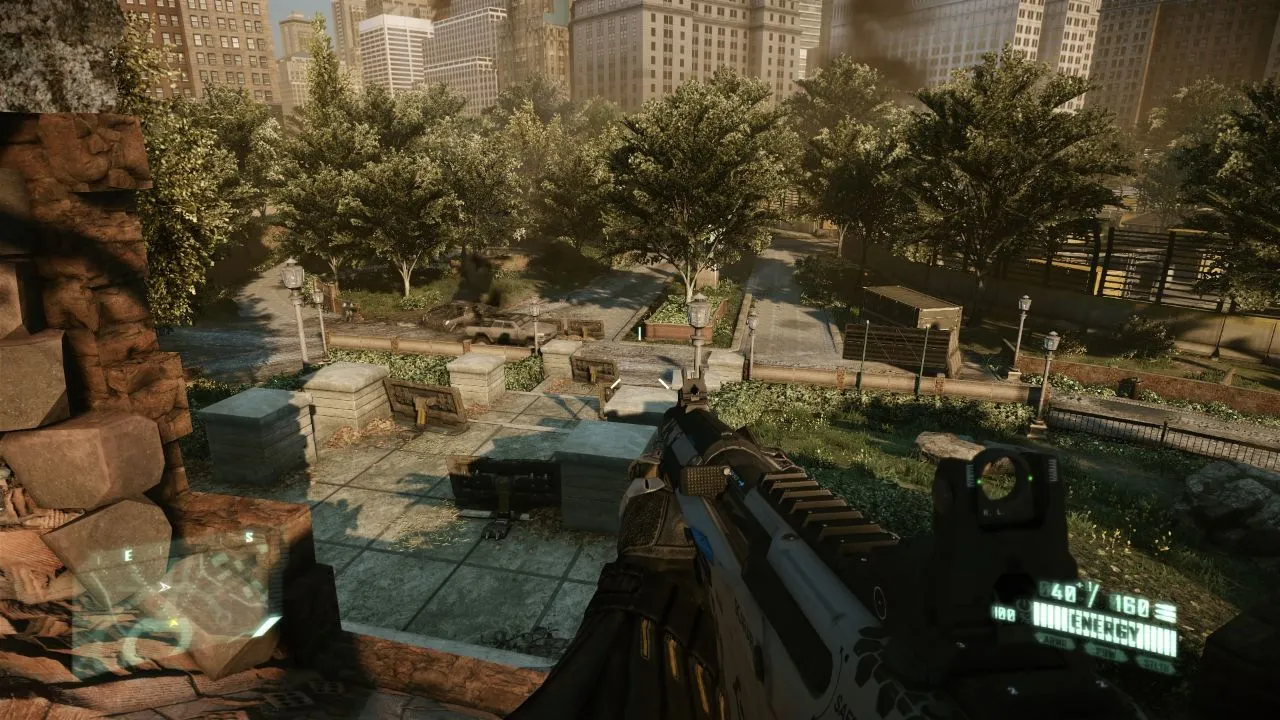

Comments (0)